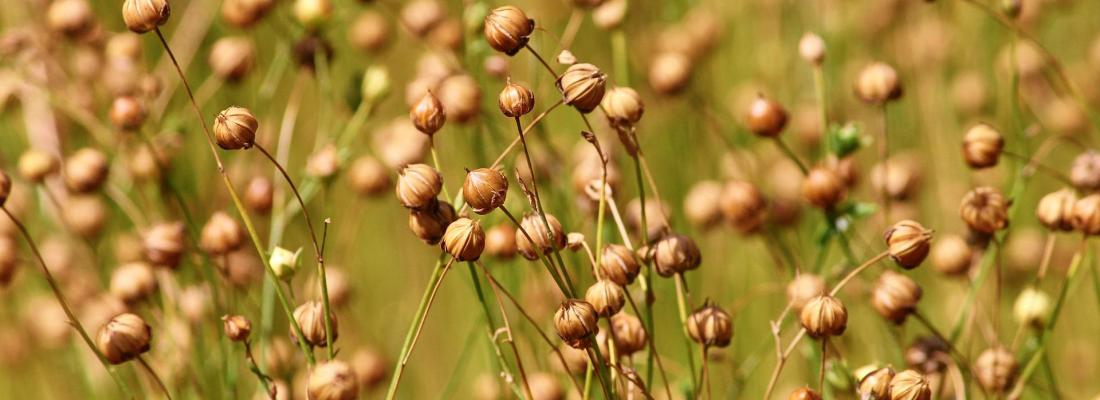Bioeconomy Reading time 2 min
Towards an environmental assessment of bio-based products
Published on 21 June 2022

Life Cycle Assessment (LCA) is an environmental evaluation of a product and includes the Life Cycle Inventory (LCI) which consists of identifying and quantifying all inputs and outputs, energy resources, raw materials and transportation required to manufacture a product or to implement a system.
This study, published in Journal of Cleaner Production, established the environmental performance of a flax technical textile from cradle to gate. This included filling gaps in life cycle inventory’s data by detailing all supply chain processes and co-products associated with the production and processing of flax fiber. The scientists also included the recovery of co-products (short fibers, seeds, shives, flakes and waste) and a broader set of impact categories analyzed (climate change; ozone depletion; particulate matter formation; depletion of mineral, fossil and renewable resources; etc.), thus allowing a better understanding of the environmental performance of this material.
Results show agricultural activities and electricity production to be the biggest contributors to the environmental impacts of flax technical textile; contributions due to land use changes were minor in comparison. Very specifically for this case study, a sensibility analysis showed the influence of an all-French production to be more efficient from an environmental point of view.
In the aim of continuing to boost the incorporation of bio-based materials to favor the implementation of a bioeconomy, future work should focus on the optimization of production processes of bio-based materials to increase their competitiveness in the market.
This work was conducted as part of Alejandra Gomez-Campos thesis in collaboration with Claire VIALLE and Antoine ROUILLY at LCA and Lorie HAMELIN at TBI.
The case study into BOPA project, financed by The French Agency for Ecological Transition, concerns the environmental evaluation of a prototype of biocomposite sandwich panel for an application in aeronautics, using flax fiber as reinforcement material.
REFERENCE
Alejandra Gomez-Campos, Claire Vialle, Antoine Rouilly, Caroline Sablayrolles, Lorie Hamelin, Flax fiber for technical textile: A life cycle inventory, Journal of Cleaner Production, Volume 281, 2021, 125177
